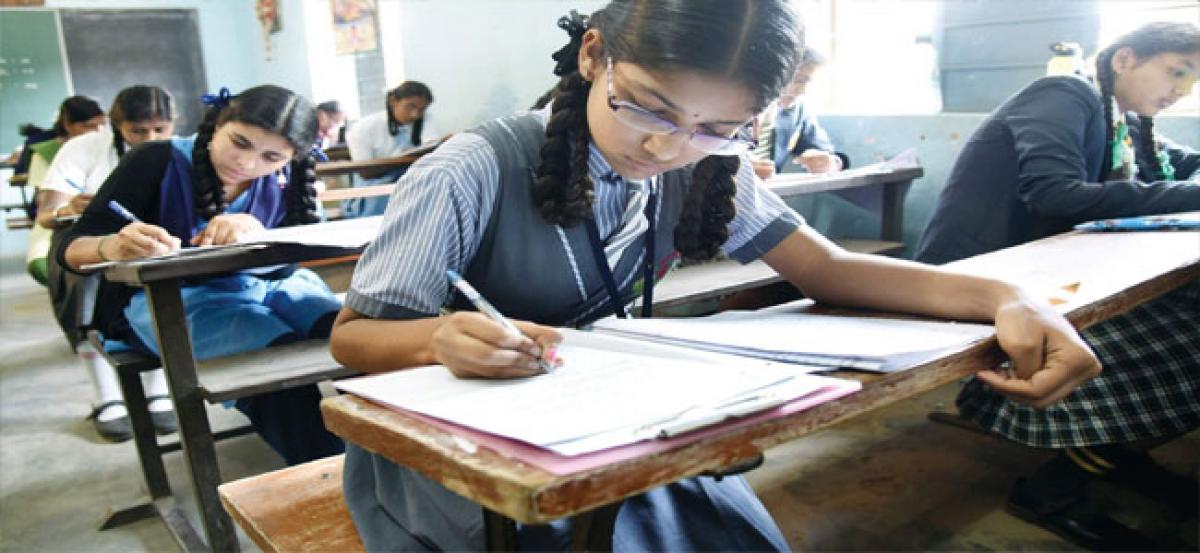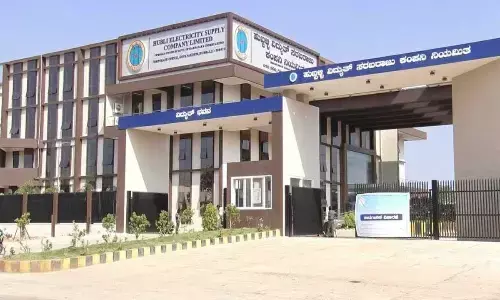Easing examination phobia

Learners who are subjected for assessment leading to the award of Certificates, Degrees, career growth, up gradation of skills have by and large examination phobia.
Learners who are subjected for assessment leading to the award of Certificates, Degrees, career growth, up gradation of skills have by and large examination phobia.
The phobia emanates from faulty learning and assimilation, lack of confidence, imagining tougher question paper, lopsided preparation for examination. Though students have prepared very well; often they get confused and fell in chaos, affecting power of recollection and reproduce in the exam hall. They quiet often for a spurt of a moment; mind becomes blank and starts sweating with increase in breath.
Plan of study
Over the years students have been appearing and attempting many examinations, but the exams phobia continues to haunt them mentally and physically. The exam phobia can be thwarted with the meticulous plan of study and targeted preparation schedule.
‘Practice makes man perfect’ and there is one more saying ‘thousand times reading is equivalent to penning one time’. Writing practice is a must to structuralise the knowledge acquired through various means of learning in the domains of mind.
Preparation of question banks and practicing model answers would give the students a sound understanding of the subject and mastery over the content. Solving the previous years question papers and model questions would give an idea on the type and difficulty levels of questions that would appear in the examinations.
Priority may be given preparing open ended questions which would generate high order thinking for high scoring. After objective and comprehensive study, students need to prepare notes. Notes can be further condensed to prepare ‘synopsis’. The one page ‘gist’ can be prepared culling out the chapter wise synopses. On the day of exam on a quick scan of the gist would give the student much needed clarity, connectivity and confidence.
After entering the exam hall, before taking the question paper a breathing exercise of deep inhale and exhale followed by two minutes of silent meditation would calm down and silence the agitating the mind. Soon after receiving the question paper in their hands, three steps are involved to be done by the students, Two minutes of quick scanning of the question paper. At this stage student would try to understand the difficulty level of the question paper and questions which he/she is familiar and confidently can answer.
At one go, the questions can be segregated into four categories; set of questions that are familiar and easy, set of questions that require modest thinking and set of questions which need deep thinking and set of questions which are out of their knowledge and comprehension. At the second stage prioritise the questions that are identified and to be attempted. In the third stage segregate the questions from among shortlisted that are very easy to answer.
Good begin is half done
In the first 30 minutes, Students need to ease out the accumulated, fomenting academic stress and exertion by choosing the question where the answer is on the tip of tongue and free flow of thought is experienced. After ensuring stability, consistence and confidence of answering the question of his/her first choice, the student can identify one or two more questions of similar thought flow during the first hour of exam where the student is fully confident and well versed.
While attempting the questions students must carefully, cautiously ‘read’ and ‘study’ the word to word form and depth of the question. Student should also carefully and cautiously identify, if the question is given in two or more parts and type of question which may pertain to one among the knowledge, comprehension, application, analysis, synthesis and evaluation.
If the questions are on High order thinking skills framed to test cognitive domain such as; application, analysis, synthesis and Evaluation the answers to be written analytically and exponentially.
The second hour can be diverted to attempt those questions which need recollection and thinking process. The last hour can be used to undertake those questions which are involved in deep thinking, corroboration and correlation. Be cautious about certain Questions would be value based question and compulsory question. Few questions are sources based questions and have no internal choice. Some questions have choices. Marks are indicated against each question.
Time management
While attempting the question paper time conscious should be the driving force. Value the time, acknowledging to the weightage of marks given for all questions. Each question is given with a ‘word limit’. Confining to word limit with expressive, concise and conceptual writing would save the time and lead to systematic presentation.
Ensure to complete writing the answers five minutes before the mandatory time to pen down. These five minutes would help students to verify whether the question numbers entered against the answers in the given booklets are same or not and to verify all supplementary answer sheets are tagged in order. The left over time if any can be used to double check the answers and to add or fill the gaps to answers if any.
Students often leave some questions due to lack of time or not knowing the answer. In Indian exams system, it is a convention that there are occasions where few questions of the question paper might be framed out of syllabus giving scope to student unrest. There would be seldom hue and cry from parents and students at large and representations and appeals from elected representatives with a request to favor the students.
A decision is likely to be taken by the educational institutions to consider such requests sparingly positive. On such occasions, students who attempts or write at least the question number and leaves the answer blank in the answer booklet likely would be given full marks.
Even sometimes whenever the question paper is found to be tough for the students the concerned Educational Institutions and Examination Boards would give , ‘grace marks’ or resort to ‘liberal correction’ where near answer or abstract answer would be given full marks.
Thus, students should not lose any such chances by not attempting all compulsory questions. Having completed writing the exam paper, once, student leaves the exam hall, better for them, not to discuss, review and lost in thinking but to start preparation for the next exam.










